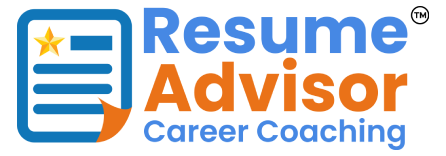
If you’ve ever wondered, “What should I really be doing with my life?” or “Am I in the right industry?”, then a career assessment might just be one of your best tools. It’s like shining a flashlight on your strengths, interests, and values — showing which paths make sense for you.
In this article, we’ll dive into what it is, the types, benefits, pitfalls and how to make it actionable. And yes — I’ll also explain how Resume Advisor can help you interpret results and turn them into real career moves.
What Exactly Is a Career Assessment?
At its core, a career assessment is a process — often involving tests, quizzes, surveys, or structured reflection — designed to help you understand your aptitudes, values, personality, interests, and strengths. The goal: to suggest careers or roles that align with who you are.
This isn’t guesswork. It blends psychology, data, and self-reflection. Many organizations, coaches, and education centers use them to guide people toward roles in which they’ll thrive.
Some key attributes of a proper assessment:
- It doesn’t just test technical skills; it digs deeper into interests, values, and personality.
- It offers more than one dimension (for example, “values,” “aptitudes,” “interests”).
- Good ones align your profile with real-world roles and offer insights, not just labels.
Why Should You Do a Career Assessment?
Because it’s tough to pick a path when you don’t know yourself well. A solid career assessment helps in multiple ways:
- Clarity – It surfaces your work preferences, what energizes you, and what drains you.
- Confidence – When you see roles that match your profile, you move forward with less second-guessing.
- Better Decisions – Use the insights to choose roles, training, or pivots more objectively.
- Strategic Planning – Helps you build a roadmap: what skills you need, what roles to aim for.
- Align with Employers – Many organizations care about fit — your assessment results can guide how you frame your “fit” in applications.
For example, research describes assessments as tools that help “discover more about your professional goals” by assessing your interests, strengths, and values.
Also, good assessments help you see possibilities you may never have considered.
Types of Career Assessments
Not all career assessment tools are the same. Here are common types you’ll come across:
|
Type |
What It Measures |
Use Case / Value |
|
Personality / Psychometric Tests |
Traits like extroversion, openness, conscientiousness |
Understand how you prefer to work in teams, under pressure, etc. |
|
Interest Inventories |
What activities, fields, tasks you enjoy |
Identify what you’ll likely find motivating |
|
Aptitude or Ability Tests |
Natural ability in areas like numerical, verbal, spatial |
Pinpoint where you have a performance advantage |
|
Value & Motivation Assessments |
What you care about (e.g. security, creativity, autonomy) |
Helps you avoid roles that conflict with your deeper needs |
|
Skill / Competency Assessments |
What you can do now (technical or soft skills) |
Helps map gaps and strengths for certain jobs |
A “career aptitude test” is one of the more popular types — it zeroes in on your natural abilities and how they align with job roles.
Examples of Popular Career Assessment Tools
Here are some well-known tools and platforms you might run into when seeking a career assessment:
- 123test — Offers a free career test that matches personality types with job suggestions.
- CareerFitter — Combines aptitude, work personality, and career matching.
- O*NET Tools (Interest Profiler, Work Importance Locator) — Government-based free tools for career exploration.
- Strong Interest Inventory — A classic inventory focused on interests vs. jobs.
- Many university and career centers also offer proprietary assessments.
Those tools help map out possibilities — but they’re a starting point, not your final roadmap.
How to Get the Most from a Career Assessment?
Doing the assessment is just step one. To truly benefit, you need to use it well. Here’s how:
1. Be Honest
Answer questions sincerely. If you overthink or choose what you think is “expected,” the results will be skewed.
2. Use Multiple Tools
Don’t rely on just one test. Combine a personality test, interest inventory, and skill assessment to see overlapping results.
3. Reflect on Patterns
Look for recurring themes across assessments. If many tests point toward “helping roles,” that’s a signal.
4. Don’t Treat It as a Verdict
Your career assessment gives clues but doesn’t lock you in. Use it to inform, not dictate.
5. Engage a Coach or Mentor
This is where Resume Advisor steps in. Jonathan helps clients interpret assessment results in light of real-world jobs and helps translate them into actionable moves.
How Resume Advisor Uses Career Assessment
Resume Advisor doesn’t just hand you a test result. They guide you through interpreting it and turning it into results. Here’s how:
- One-on-One Coaching: After assessment, Jonathan walks you through what your results mean, where they align with your goals, and where they don’t.
- Mapping to Job Roles: He helps you match your assessment insights to specific job titles and career fields.
- Resume & Profile Customization: Use your assessment to highlight your natural strengths in your resume, cover letter, and LinkedIn.
- Skill Gap Planning: Identify which skills to build and where you already have advantages.
- Confidence Building: Sometimes assessment feedback triggers doubt or surprises — a coach helps you process and move forward.
So in effect, Resume Advisor transforms your career assessment from a report into a strategy.
Common Misconceptions & Mistakes
When using a career assessment, people often fall into traps. Here are some to avoid:
- “This is 100% accurate.” No test is perfect. Think of it as guidance, not prophecy.
- Choosing something just because it sounds cool. If it doesn’t fit your preferences or life constraints, it might not be fulfilling.
- Ignoring real-world constraints. Even if your assessment suggests “marine biologist,” but you can’t relocate or get the credentials, you’ll need realistic pathways.
- Letting fear shrink your options. Don’t throw out paths because they seem intimidating. They might be your best growth areas.
- Trying to force-fit results. If your results push you toward careers you genuinely dislike, push back and search for alternative angles.
When to Take a Career Assessment
You don’t need to wait until you’re lost. The right time is:
- Early in your career or during transitions. Helps steer your next steps.
- When you feel stuck or restless. You want data, not guesswork.
- Before big investments. Like choosing a major, applying for advanced education, or switching fields.
- During career coaching. To give structure and clarity to your sessions.
Many people underestimate how early insight helps avoid years of drift.
Turning Assessment Results into Action
Assessment results have value only if acted upon. Here’s how to turn your career assessment insights into a real plan:
- List top career matches. Use tests to generate options.
- Research each option. Ask: what do people in that field actually do day to day?
- Compare with your life needs. Salary, location, work-life balance — see what fits.
- Test small experiments. Do informational interviews, freelance gigs, or side projects.
- Build skills aligned with one or two paths. Focus rather than spreading thin.
- Periodically reassess. You evolve—results might shift.
Resume Advisor helps clients make this transition — from “assessment result” to “realistic action path” — with clarity and support.
A Simple Example: Putting It All Together
Let me walk you through a hypothetical:
- You take a career assessment that highlights strong interpersonal, creative, and leadership skills.
- The test suggests roles like “training & development,” “corporate communications,” or “team leader in client services.”
- You meet with Jonathan at Resume Advisor, and together you narrow options based on location, salary, and lifestyle.
- You select “corporate communications,” and build a small project (e.g. run a blog or internal newsletter) to test interest.
- You also identify skills to build: writing, public speaking, strategic messaging.
- Over time, your resume, interviews, and network begin aligning with that path.
That’s a real transformation from career assessment result to real career momentum.
Tips and Best Practices
To squeeze maximum value out of your career assessment:
- Take it in a focused space (no distractions).
- Don't rush—reflect on each question honestly.
- Ask follow-up questions. Why did the test suggest X?
- Keep a journal of your thoughts after seeing results.
- Share and discuss results with mentors or coaches.
Also, don’t be surprised if your first result isn’t perfect. It may take a few rounds to find clarity.
Final Thoughts
A career assessment can feel magical — a mirror turning up insights you didn’t see. But its real power lies in what you do next. Use it as a tool, not a verdict.
And if you want help making sense of your results, building a path forward, or navigating tricky choices — Resume Advisor is here. With one-on-one coaching, Jonathan helps you move from uncertainty to clarity, from possibilities to action.
Your career is your story — and it gives you some of the prompts. How you write the next chapters is entirely up to you.

